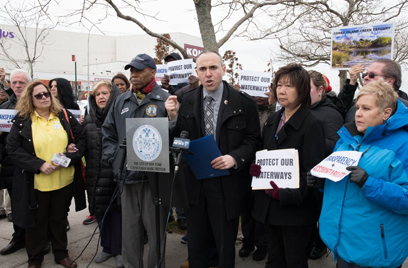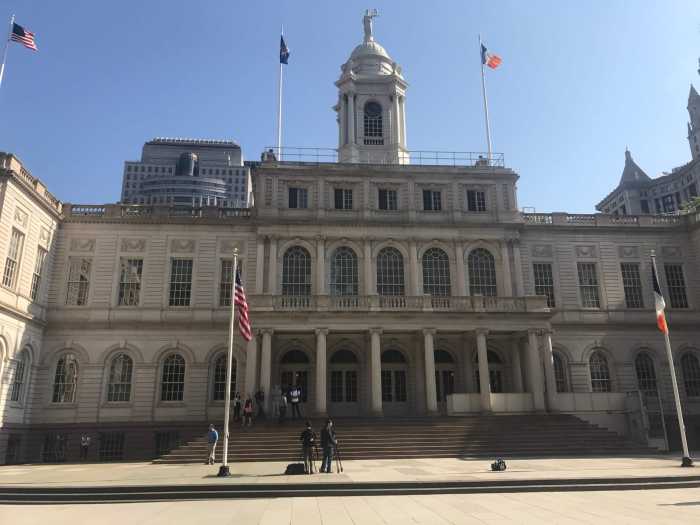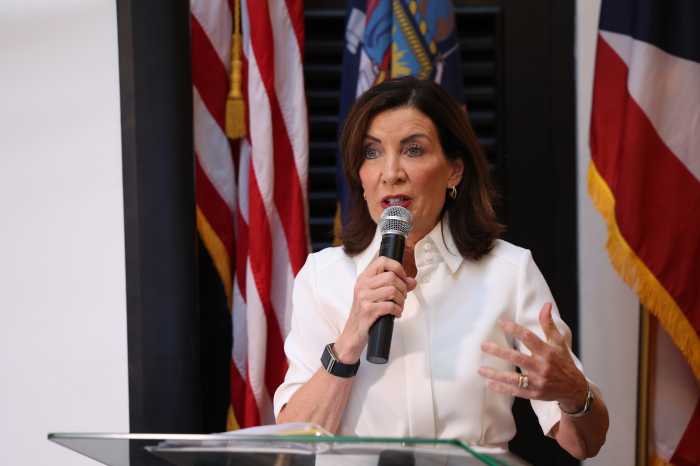Local officials slammed the state for not immediately alerting residents who fish and boat in Gravesend Bay that an oil distributor spilled at least 27,000 gallons of fuel into the inlet, saying the Department of Environmental Conservation is shafting Southern Brooklynites for consistently failing to warn people when the water is unsafe.
“Let me be clear, Gravesend Bay and Coney Island Creek are not some toilet bowl for government or for private industry,” said Councilman Mark Treyger (D-Coney Island) at a press conference on April 7. “I find it absolutely outrageous and unbecoming of an agency named the Department of Environmental Conservation that they have failed on all fronts to protect the environment and public health of this area and have failed to properly notify this community.”
Bayside Fuel Oil Depot Corporation reported the spill to the state Department of Environmental Conservation at 4 am on March 30, within two hours of the accident, according to an agency spokeswoman. But the Department of Environmental Conservation only began notifying elected officials the following week — informing Treyger and the mayor’s office on April 6 — and did not publicly announce the toxic spill to people who actually use the bay until an April 7 press release about the clean-up.
Pols find the delay in communication particularly upsetting after city and state officials met with the community last November and apologized for failing to alert locals that a Gravesend Apartment Complex was dumping 200,000 gallons of raw sewage per day into Coney Island Creek — possibly for years — until after it was made public by environmental advocates who leaked e-mails to this paper.
“We should not find out by accident about an accident,” said Borough President Adams, referring to whistleblowers inside the state agency leaking news of the oil spill to environmental advocates and city officials. “Community residents, blogs, emails, tweets, voicemail — that is not the form of communication and transparency that should be used in government and it is unacceptable.”
Public Advocate Lettia James called on the New York attorney general and the district attorney to investigate the spill as well as the notification process. And Comptroller Scott Stringer also plans to review the state’s procedures for notifying the public, for clean-up efforts, and for holding Bayside Oil accountable for the spill.
So far, more than 5,000 gallons of oil have been removed from the bay as part of clean-up efforts. The state’s investigation of the spill is ongoing, but Bayside Oil could face $62,000 in fines per day per violation under State Environmental Conservation Law and New York Navigation Law, according to a Department of Environmental Conservation spokeswoman.
The agency did not respond to questions about why locals were not told about the spill sooner, but said it aims to aggressively pursue Bayside Oil for the damage done, said the commissioner of the Department of Environmental Conservation.
“The state is thoroughly investigating this incident and will ensure these polluters are held accountable,” said Basil Seggos.

























